Number Recognition Easy Addition Worksheets for Ages 3-5
15 filtered results
-
From - To
Introduce your little learners to the exciting world of number recognition and addition with our "Number Recognition Easy Addition Worksheets"! Tailored for ages 3 to 5, these engaging worksheets combine fun visuals with simple math exercises, helping young children grasp foundational skills essential for their math journey. Each worksheet fosters a lively learning experience, encouraging confidence in recognizing numbers and solving basic addition problems. Perfect for preschool or homeschool settings, these resources support cognitive development while making learning enjoyable. Download now and watch your child’s skills grow as they explore numbers and addition in a playful, educational format!
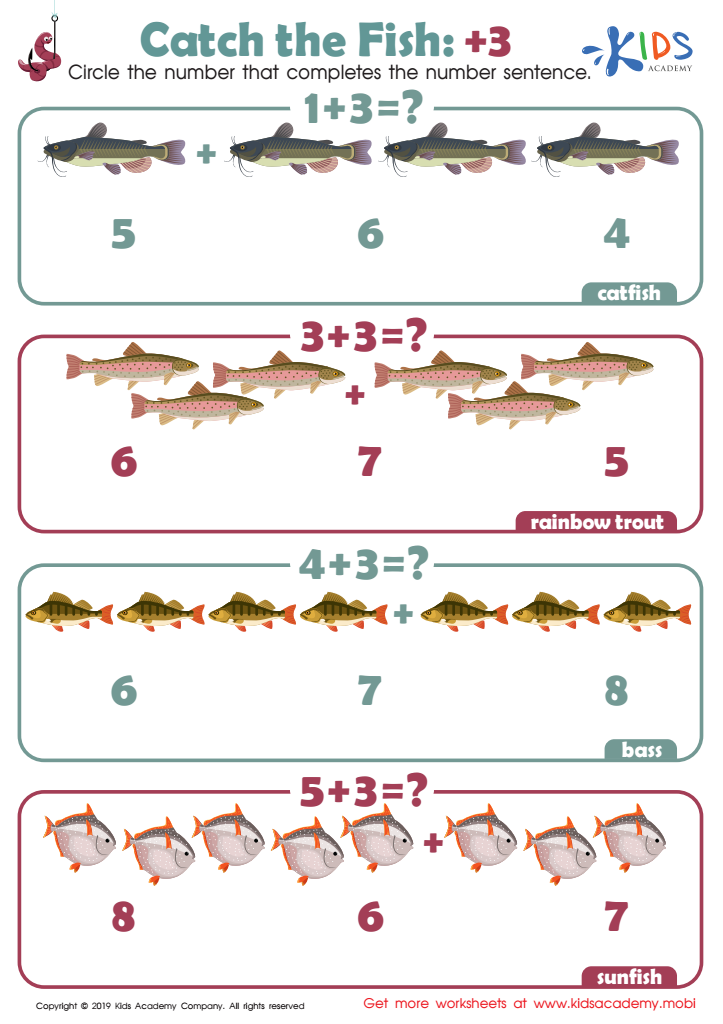

Catch the Fish: +3 Worksheet
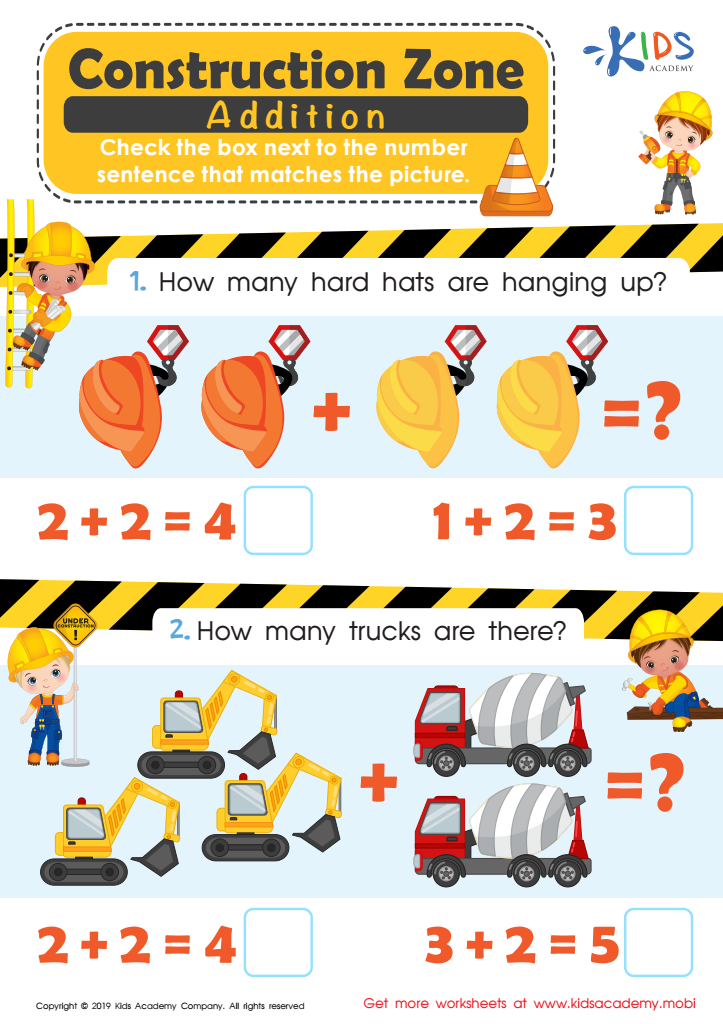

Construction Zone Addition Worksheet
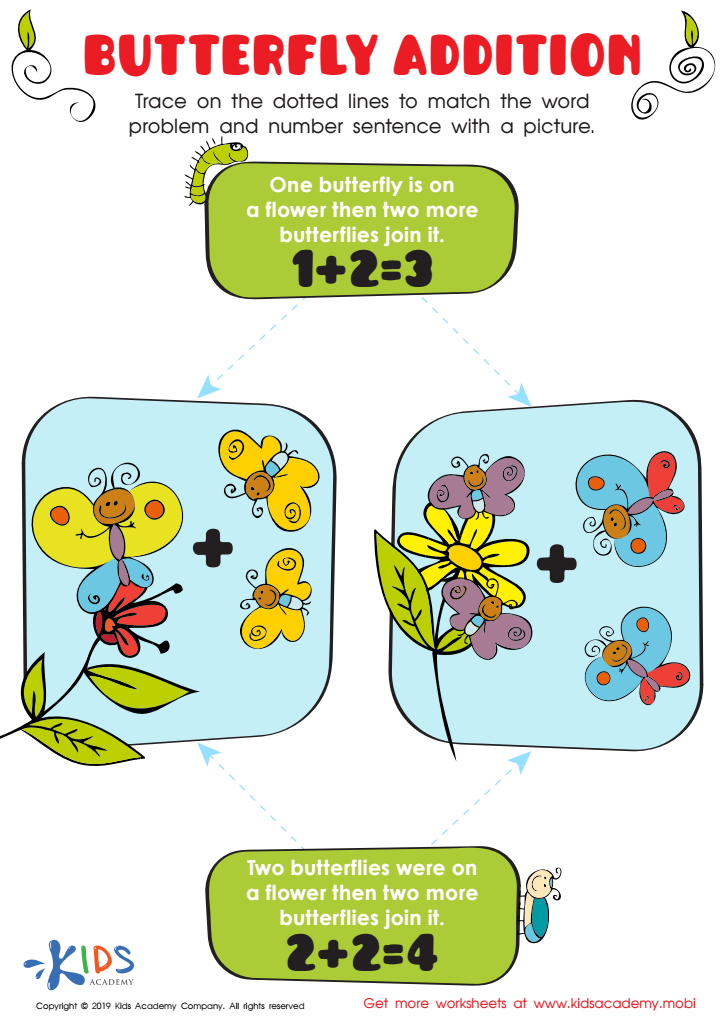

Butterfly Addition Worksheet
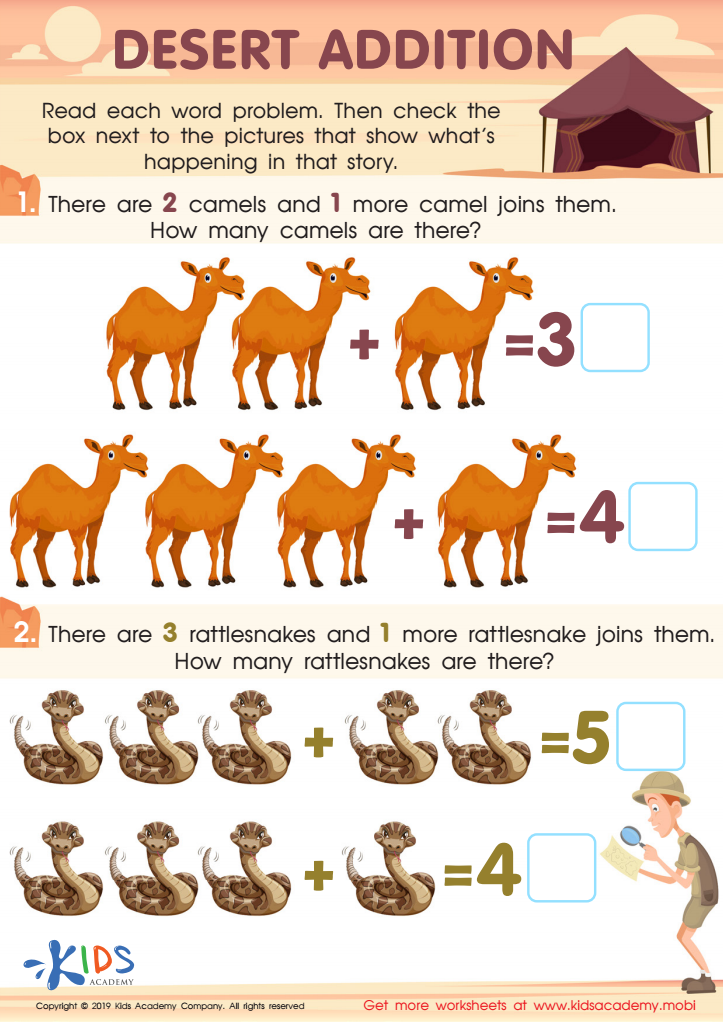

Desert Addition Worksheet
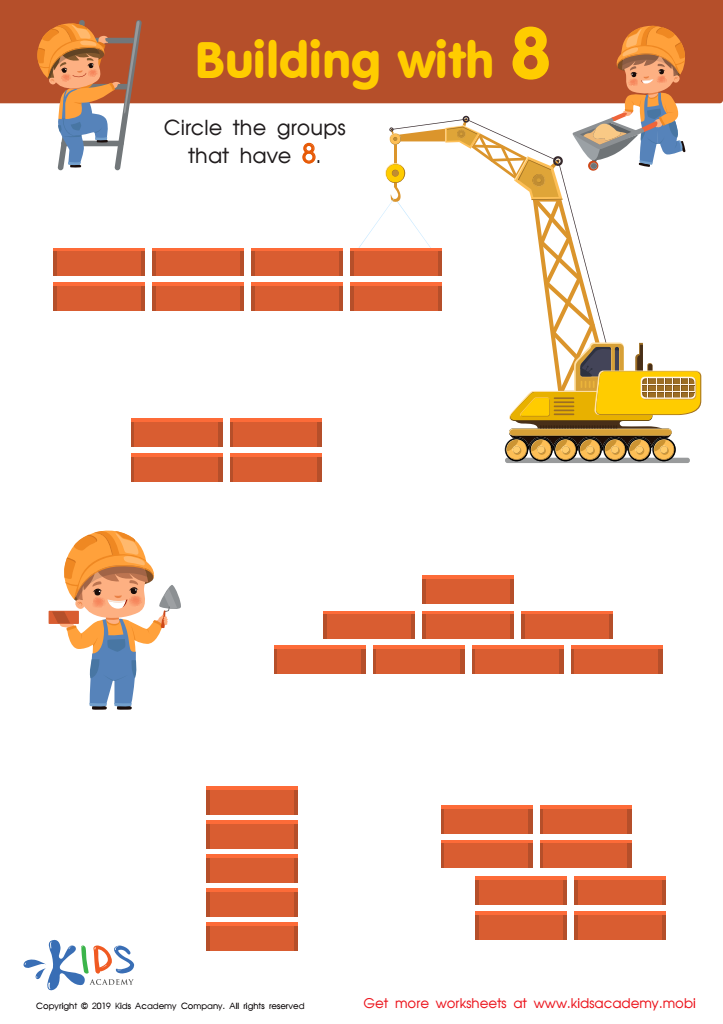

Building with 8 Worksheet


Counting Seedlings Worksheet
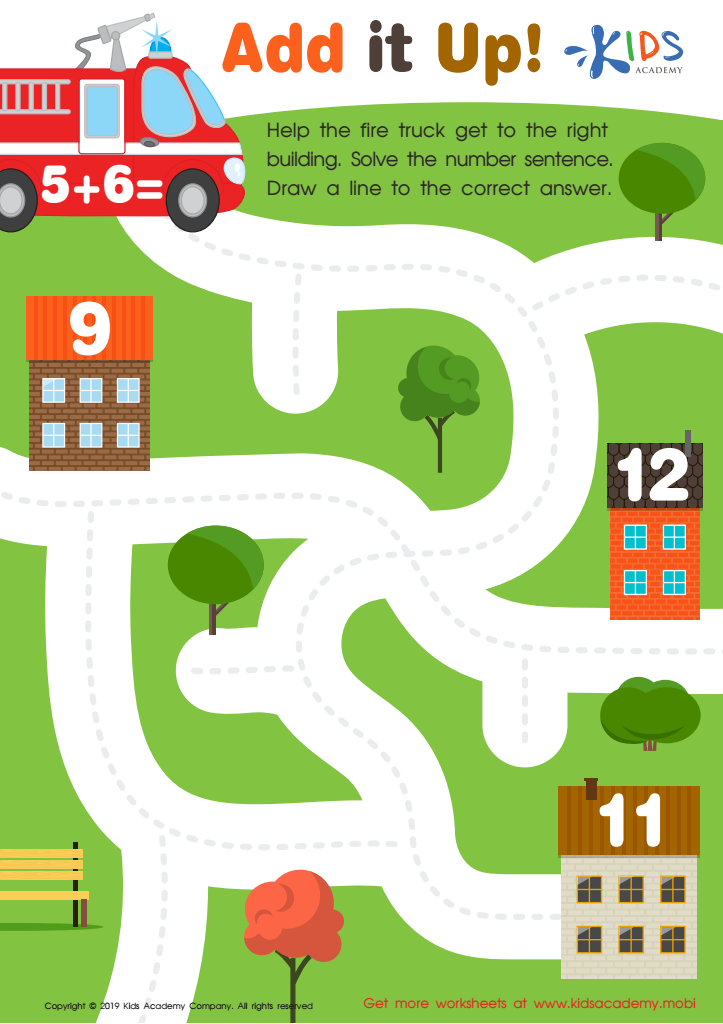

Add it Up Worksheet
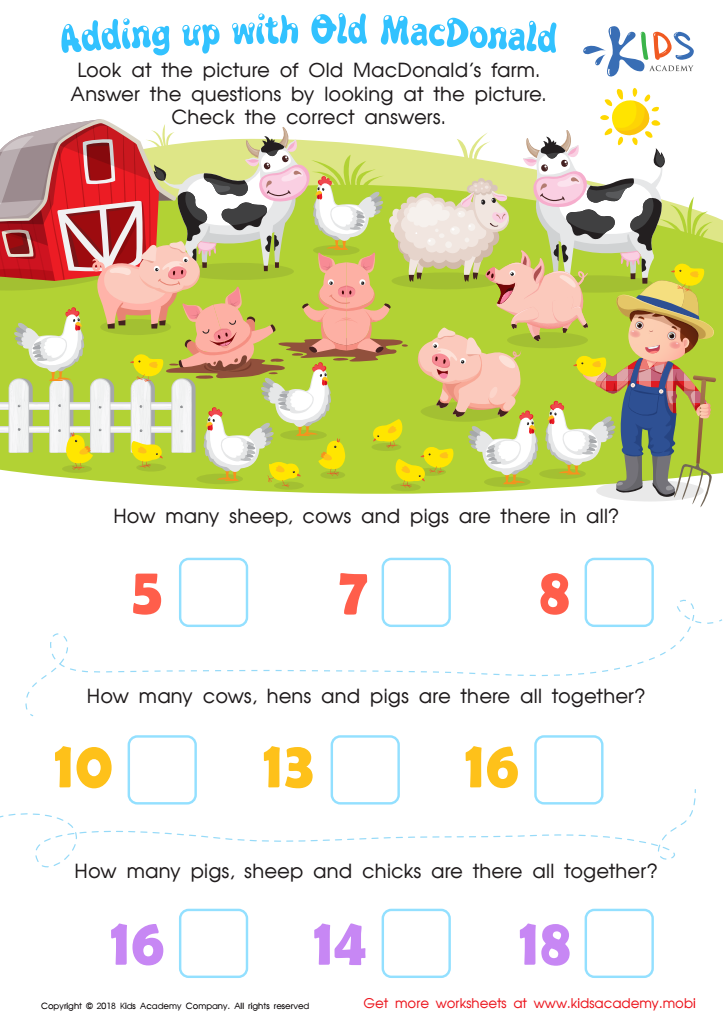

Adding Up with Old MacDonald Worksheet
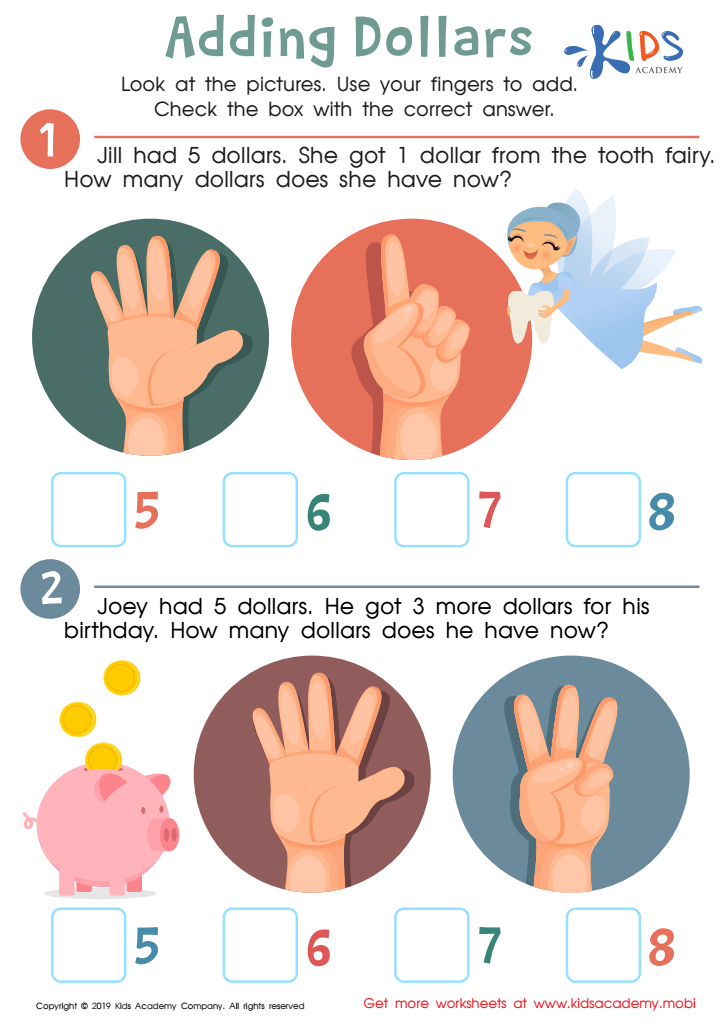

Tooth Fairy Addition Worksheet
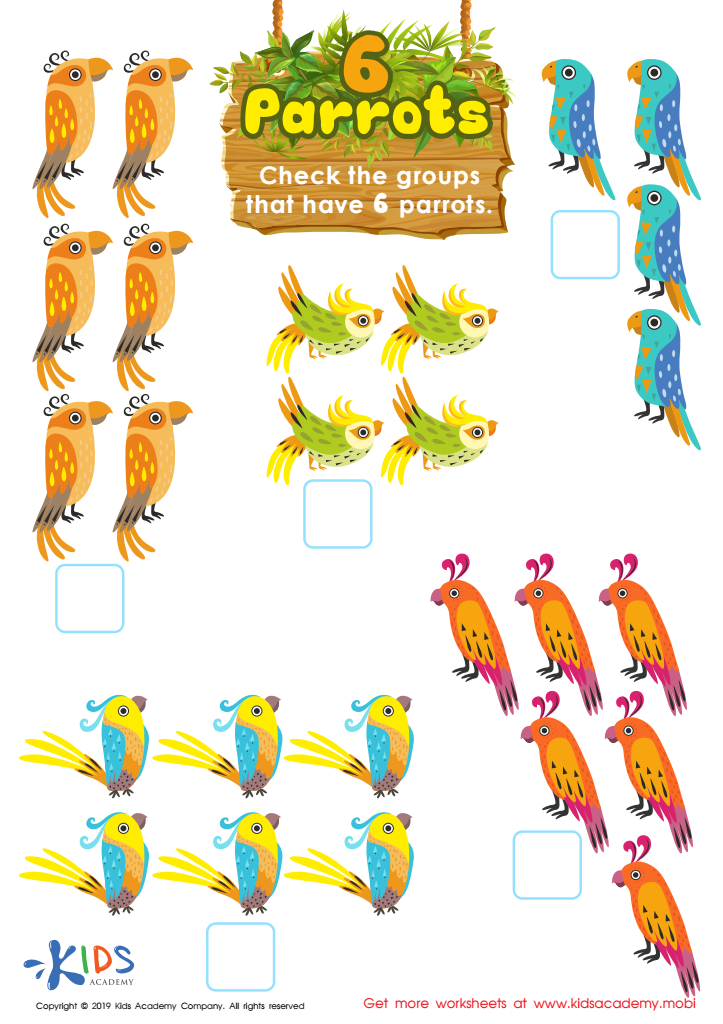

6 Parrots Worksheet
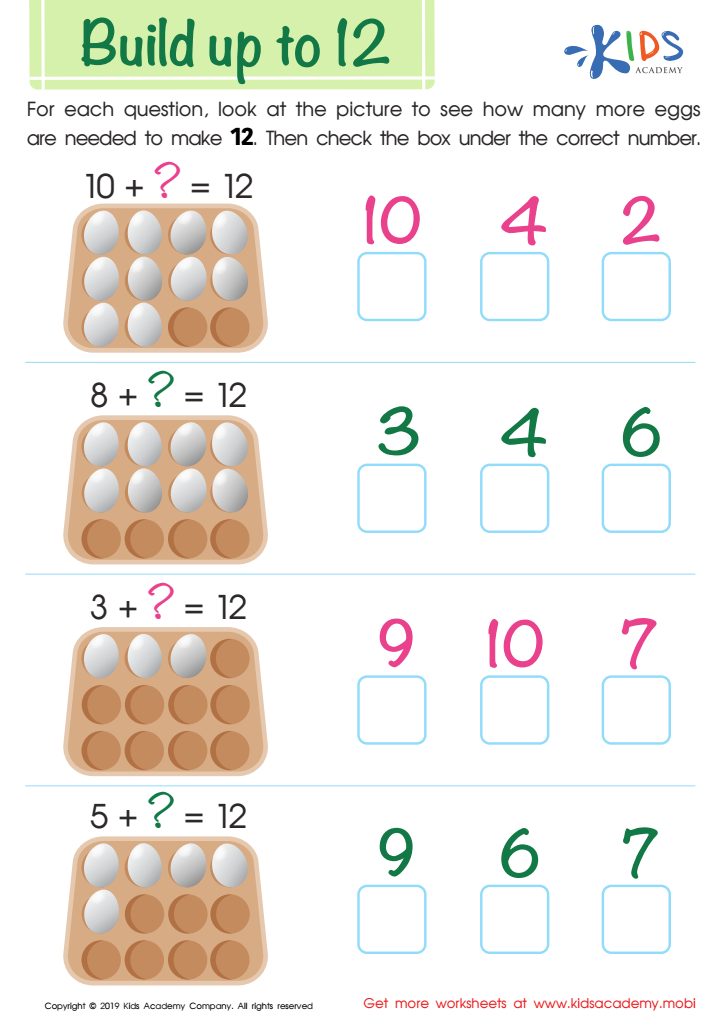

Build up to 12 Worksheet
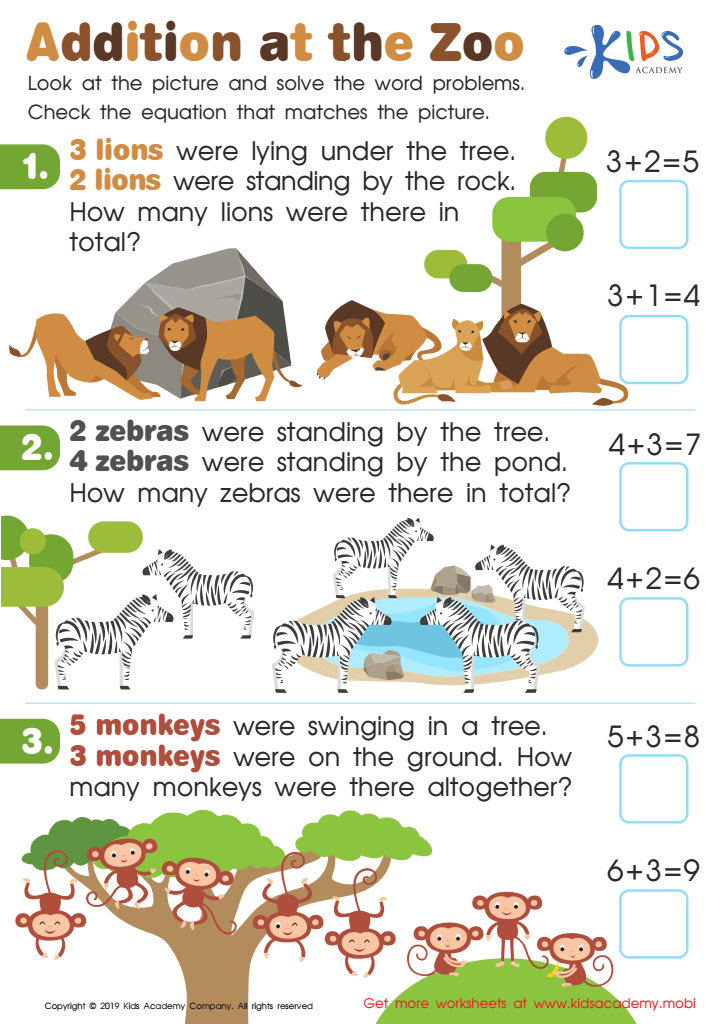

Addition at the Zoo Worksheet
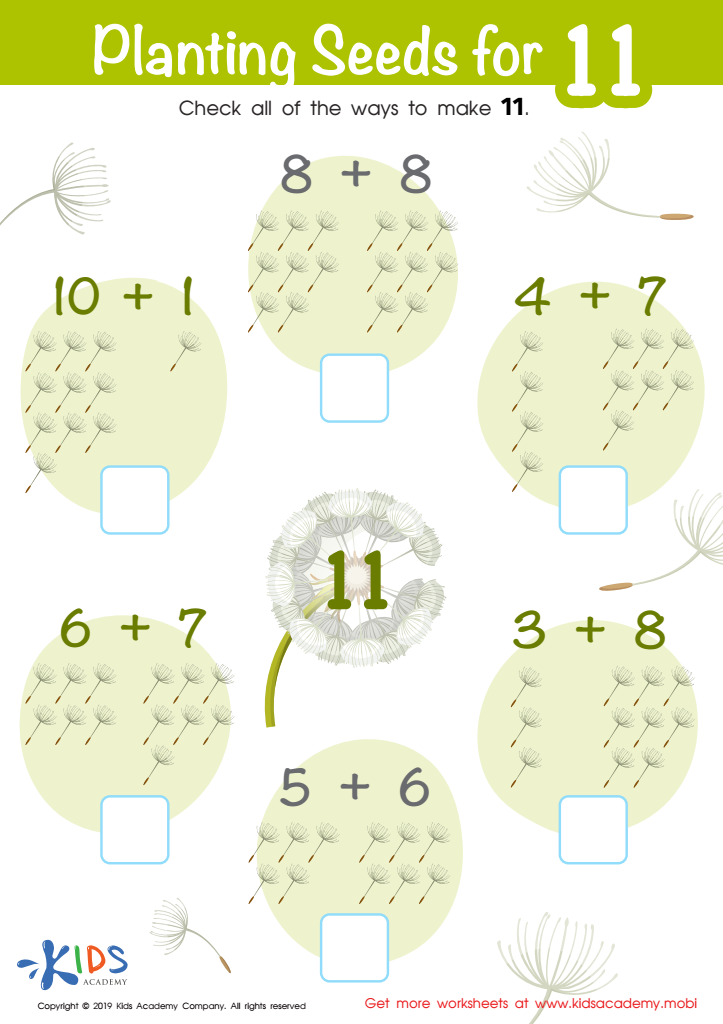

Planting Seeds for 11 Worksheet
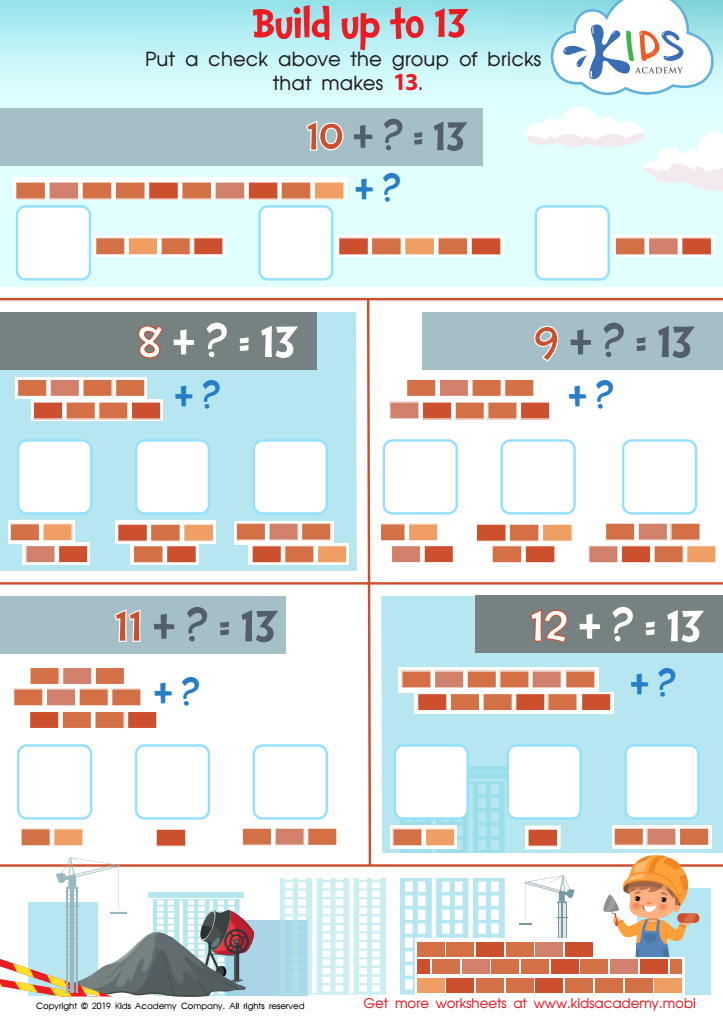

Build up to 13 Worksheet
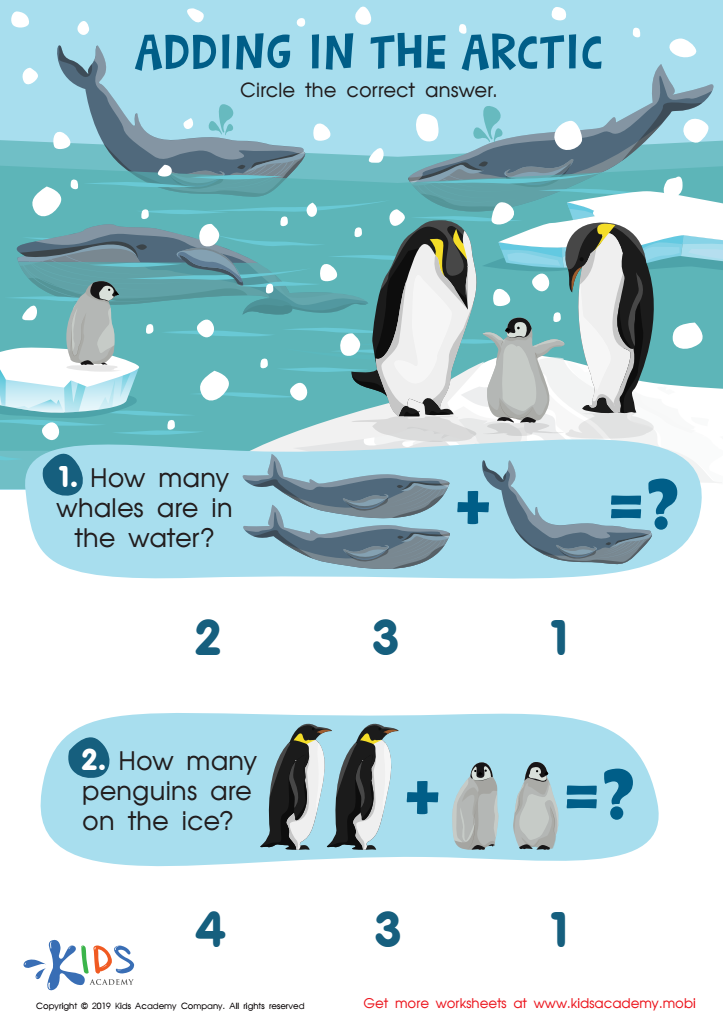

Adding in the Arctic Worksheet
Number recognition and easy addition are foundational skills that set the stage for a child’s mathematical understanding. For parents and teachers, promoting these skills in children aged 3-5 is crucial for several reasons.
Firstly, number recognition helps children identify and understand numerical symbols, a key step in developing basic math fluency. Recognizing numbers fosters confidence and readiness for more complex calculations later on. Additionally, easy addition exercises introduce the concept of combining quantities, which is a building block for problem-solving and critical thinking.
Engaging children in these activities cultivates a positive attitude towards math, making it fun and interactive. By incorporating games and practical examples, parents and teachers can capture the children's interest, transforming math into an enjoyable experience rather than a daunting task.
Moreover, early exposure to math concepts correlates with academic success in later years. Research suggests that children who master basic number skills in preschool are more likely to perform better in school overall.
Overall, nurturing number recognition and easy addition in young children not only promotes math competence but also contributes to their cognitive development, lays the groundwork for future learning, and fosters a lifelong appreciation for mathematics.
 Assign to My Students
Assign to My Students





















